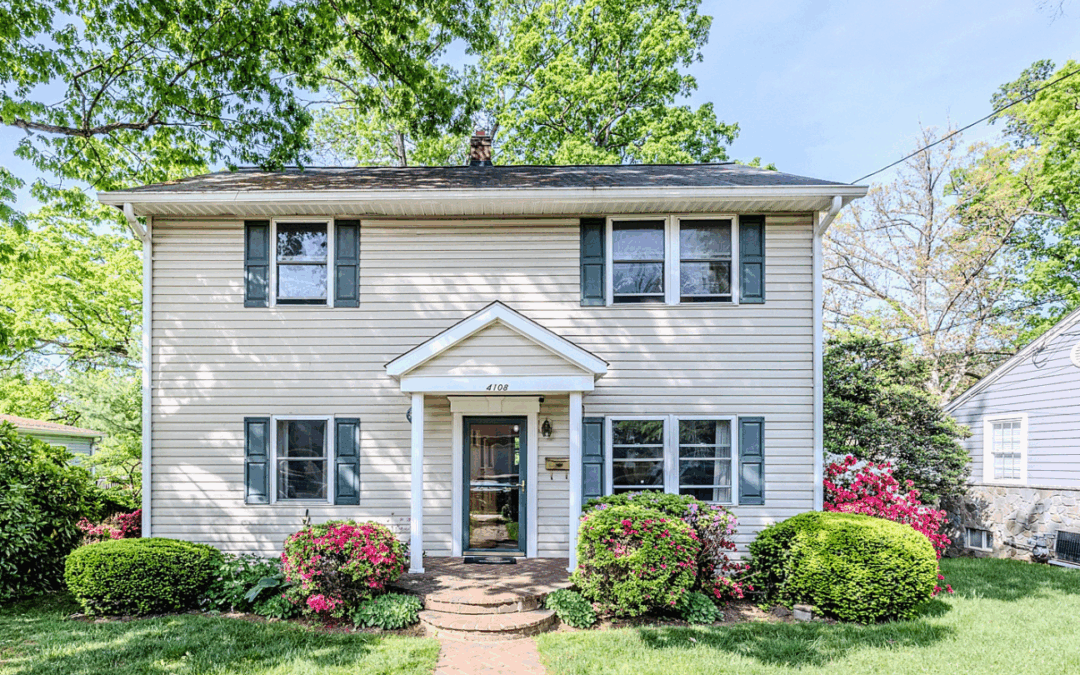How to Find the Right Mortgage Lender
Purchasing a home is a significant investment. For most, it’ll be one of the largest purchases of their lifetime! As such, many homeowners decide to finance their purchase with a mortgage loan but are lost when it comes to the process.
In this article, we’re breaking down everything you need to know about mortgage loans, so you can find the right mortgage lender for you!
1. Understand the Basics
Where Can You Get a Mortgage Loan?
There are many different companies and financial entities that provide mortgage loans. It’s important to know your options as there are pros and cons to each.
Conventional Banks
Of course, you can obtain a mortgage loan from most conventional banks, pending qualification. When working with a conventional bank to secure a mortgage loan, you’ll be assigned a personal loan officer to help see you through the process. You may prefer this route if you desire a more personal experience or already have an account with the institution.
Credit Unions
You can also secure a mortgage loan through a credit union. While banks and credit unions are similar, there are a few key differences that should be considered. For example, to apply for a mortgage loan with a credit union, you must be a member of that credit union. When working with a bank, you do not need to be a member or already have an account. Many find credit unions offer an even more personal experience and often offer members-only deals.
Nonbank Mortgage Lenders
Beyond banks and credit unions, you can also obtain a mortgage loan from a nonbank mortgage lender, including online lending companies like Ally and Rocket Mortgage. These types of institutions specialize in mortgage loans, and as a result, often boast speedy and reliable service.
Mortgage Brokers
Mortgage loans can also be obtained through mortgage brokers. Unlike mortgage lenders, mortgage brokers do not provide mortgage loans directly. Rather, they review rates & offers from a myriad of lenders and advise you as to your best options. They will then act as an intermediary between you and the lender, passing along documents and communications.
Working with a mortgage broker can be advantageous as it may save you time and money upfront, but it’s important to note brokers usually collect a commission, so you’ll want to ask about any potential fees if you decide to go this route.
While there are other types of mortgage lenders, like hard money lenders, the above mentioned are the main sources of mortgage loans for your typical borrower.
What are the Different Types of Home Loans?
After considering different lender options, you’ll also want to consider your different loan options. Like with lenders, there are pros and cons to each loan program. There are also different requirements for different loans, so it’s a good idea to have a general understanding of each before you begin your search.
Conventional Mortgage Loans
Conventional mortgages are non-government backed loans and account for a large portion of mortgage loans overall. Many opt for a conventional loan to take advantage of low rates while still being able to put down a smaller down payment.
Lender requirements for conventional loans typically include:
- Credit score – a minimum of around 620-650 or upwards of 740 for better rates
- Debt-to-income (DTI) ratio – generally no higher than 41%-43%
- Down payment – typically 3%-5%
- Private mortgage insurance – when putting down less than 20%
Beyond these requirements, there are also stipulations surrounding the loan amount that will further classify the conventional loan as either conforming or jumbo.
Conforming Loans
Conforming loans meet the Federal Housing Finance Agency’s (FHFA) requirements to be sold to Fannie Mae and Freddie Mac, two of the largest federally-backed mortgage companies in the United States. If the criteria are met, Fannie Mae and Freddie Mac will then “either hold these mortgages in their portfolios or package the loans into mortgage-backed securities (MBS) that may be sold.”
The limit for a conventional conforming loan in 2023 is $726,200 in most parts of the continental US and $1,089,300 in higher-priced areas like Alaska and Hawaii.
Jumbo Loans
Jumbo loans are those that exceed conforming limits and as a result are not able to be sold to Fannie Mae and Freddie Mac. Jumbo loans are a good option for qualified borrowers looking to purchase a higher-end property.
Government-Backed Loans
In contrast to conventional mortgages, which are non federally backed, there are a few different types of government-backed loan options for qualified borrowers.
FHA Loans
FHA loans are insured by the Federal Housing Administration and are a good option for those struggling financially. FHA loans are granted to borrowers with credit scores as low as 580 and require a down payment of just 3.5%. Some expectations may be made to borrowers with even lower credit scores given they put down a larger down payment.
VA Loans
VA loans are administered through the Department of Veteran Affairs. VA loans allow veterans to purchase a home with low interest rates and no down payment. These loans are a great option for those who qualify.
USDA Loans
USDA loans are secured through the US Department of Agriculture and are a good option for those who live in a rural area and meet certain income requirements. USDA loans are available to those with low to moderate incomes, often with nothing down.
What Are The Different Interest Rate Options?
Just as there are different loan options, there are different interest rate options. The two main types are adjustable-rate mortgages and fixed-rate mortgages.
Adjustable-Rate Mortgage
Adjustable-rate mortgages are those in which the amount of interest charged on the principal will change according to the market. These types of loans often have lower rates than fixed-rate mortgages with even lower introductory rates. However, because rates are subject to market conditions, your monthly payments are likely to fluctuate – sometimes in your favor and sometimes not.
Fixed-Rate Mortgage
As the name implies, with a fixed-rate mortgage, your rate never changes throughout the loan term – no matter the current market interest rate. While fixed-rate mortgages tend to have higher rates than adjustable-rate loans, borrowers can depend on steady monthly payments throughout the loan’s entire term.
2. Get Prepared
Now that you have a better idea as to where you can obtain a mortgage loan as well as your different loan and interest rate options, it’s time to start preparing to find the right mortgage lender for you.
Knowing what different loan programs require, you can start to get your finances in order accordingly. This will entail ensuring your credit score and DTI are in alignment with loan criteria and that you have sufficient down payment. Remember, you can always put down more than required!
3. Ask Questions
When trying to find the right mortgage lender for you, it’s also important that you ask the right questions to potential lenders. Here are a few to consider:
Loan Specific Questions
- What are my loan options? What do you recommend for me?
- What is the interest rate & APR?
- What will my monthly payments & fees be?
- How long is the loan term?
- What will my down payment be?
- How much will I be paying in total over the loan’s lifetime?
- Who will service the loan?
- What kind of bill pay options will I have?
General Lender Questions
- What lender fees will I be required to pay? Origination fees, other lender fees?
- What will I pay at closing? Appraisal, title search, property taxes, other closing costs?
- Are any fees up for negotiation?
- Do you offer a mortgage rate lock? How long is this lock-in period?
- Is there a prepayment penalty?
- Will I need mortgage insurance?
- Do you offer discount points?
- What escrow requirements do you have?
- Do you offer preapproval?
Process Questions
- Are you doing a hard credit pull today?
- How often will I be updated on the loan’s progress?
- How will I receive communications?
- How long will the preapproval and approval processes take?
- Will I have the option to sign documents online?
Broker Questions
- What fees and commissions will be charged and who will pay them – me or the lender?
- How many quotes did you review?
- Why do you think this is the best option for me?
4. Compare Offers
When shopping for a mortgage loan, it’s important to compare offers from a few different lenders, generally three or more, to get the best rate and terms. Purchasing a home is no small feat, so it’s important to try to get the best deal possible!
Once you’ve vetted a handful of lenders, or had a broker do so on your behalf, and made your decision, you’re one step closer to achieving your real estate goals!
5. Find Your Dream Home
After choosing the right mortgage lender for you and receiving your letter of preapproval, you’re ready to hit the housing market! Most preapproval offers last for 90 days, but be sure to check your agreement to be 100% sure.
Need Further Assistance?
We hope that we were able to help you in your search in finding the right mortgage lender for you! If you have any additional questions or are located in the DMV and need further assistance in navigating the mortgage market, don’t hesitate to reach out! We offer free, no strings attached consultations. Plus, we work with a network of trusted lenders to further help in getting you the best deal possible!



